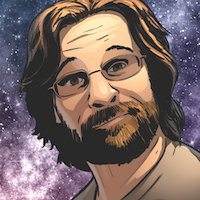The eleventh hour villain.
There are few things that ruin a long-running story for me more than an eleventh-hour villain. I don’t know if that’s an established term, but it’s one I use all the time for something that makes me tear my hair out. An “11th Hour Villain” is a villain who shows up late in a story, is inexplicably more powerful than both the story’s heroes and established villains, and we as an audience are expected to be impressed because this newcomer is such a bad-ass and can easily lay waste to characters we’ve come to love or hate over a longer period of time. It drives me crazy when I see it and it’s nearly ruined stories I otherwise loved.
There are countless examples of this, but I’ll stick with two for brevity: Mass Effect 3 and Breaking Bad.
I loved everything about Mass Effect 3. Most everything. The story was great, the conclusions to the various character arcs were emotional sledgehammers (I still get the sniffles thinking about Mordin), I really enjoyed the “corrected” endings, and I don’t know how many hours I spent on the multiplayer mode making memories with good friends. But there was one character that spoiled my enjoyment of this otherwise fine game, and it wasn’t the ghost kid. It was Kai Leng. Everything about him made me furious. A super-powered ultra tech ninja who is capable of fighting off my entire team nearly by himself, introduced out of nowhere at the climax of a long-running story. He even kills one of your teammates! I’m not alone in my hatred of this guy. Ask anyone who has played ME3 what they think of Kai Leng and the answer will almost universally be “I’ve never hit a button on my controller so hard to kill someone.” And the tone is never out of respect for the character or the satisfaction that comes from defeating a genuinely difficult challenge. It’s always dismissive, aggravated, or downright angry. Forget what anyone says about ME3’s ending. Kai Leng was the real insult in that game.
I did not expect to enjoy Breaking Bad as much as I did. I’m not normally drawn to stories like that, but there was something magical about that show’s cast that made the tragic story wholly compelling and impossible to ignore. Gus Fring was one of the most layered and terrifying villains on television. I loved him, though I was not cheering for him. And yet, at the show’s conclusion, we were not treated to Walter White’s showdown with him. That happened in the show’s penultimate season (which was incredible). We were not treated to a showdown with his brother-in-law Hank, the federal agent who had spent multiple seasons growing as a character and coming close to discovering White’s devastating secret. No, at the show’s conclusion Walter White had a showdown with a white supremacist biker gang who was only introduced in the final season, who somehow had the influence and the organization to execute a coordinated prison assassination, gun down several federal agents with zero consequences, murder characters on their doorstep, and have the facilities to keep a beloved character chained to their meth lab as a slave. There was zero sign of these guys for four seasons, and somehow they were deadlier than several drug cartels. The biker gang really soured the final season of Breaking Bad for me.
I despise 11th Hour Villains. It is far more satisfying, in my opinion, when a final showdown happens with an established villain who has had their presence felt over a long period of time. Introducing a sudden bad-ass late in the story and making them a crucial hurdle, or even a final obstacle, is lazy one-upsmanship and a sort of reverse deus ex machina. I’ve always been careful not to fall into the trap of the 11th Hour Villain, and we have safeguards in place here to avoid it.
Whenever it’s time for STAR POWER to come to an end, rest assured that her final showdown will be with a character that’s already been introduced. You’ve met them already.
